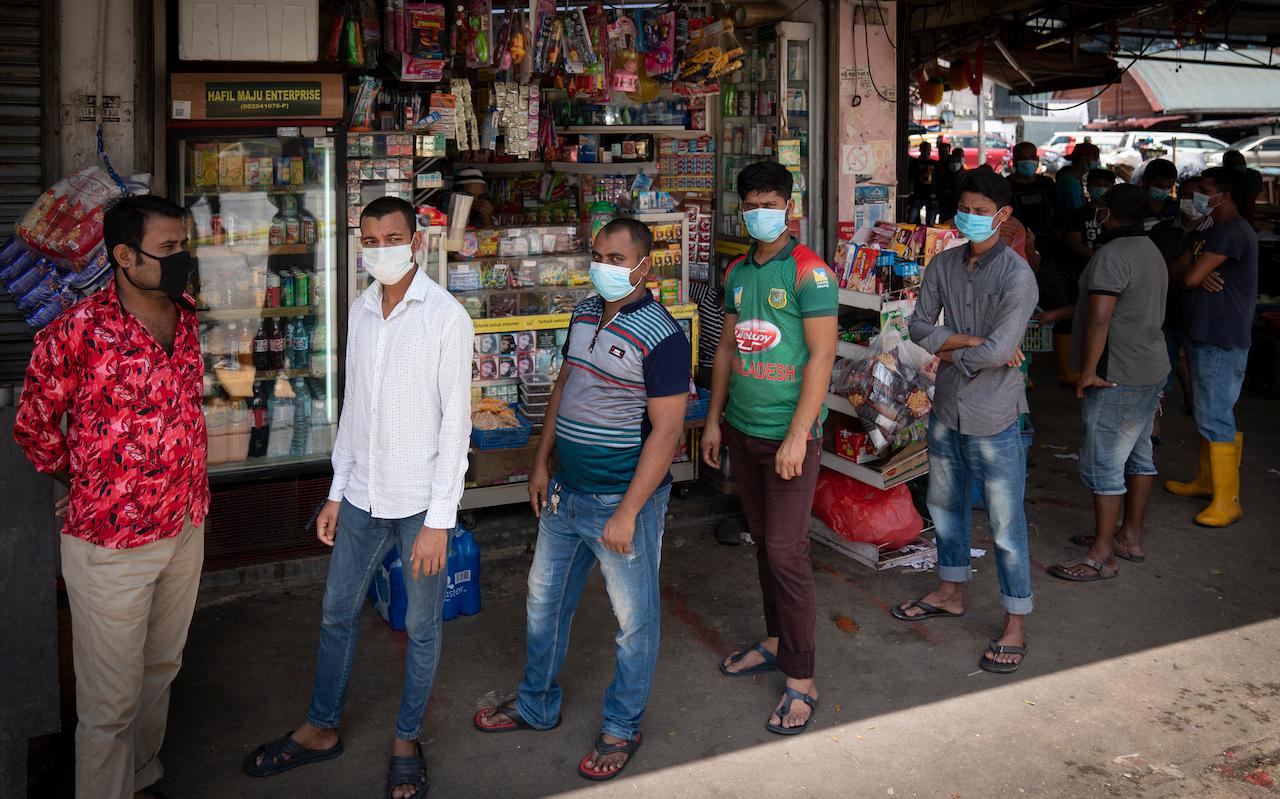Reluctant migrants could hamstring efforts to reach herd immunity
Many are distrustful of the government following last year's raids and have their own concerns about the safety of the Covid-19 jabs.
Migrants and refugees concerned about the side effects of Covid-19 jabs and smarting from years of what they call a trust deficit in the government could throw a spanner into the works of the country’s vaccination programme, the second phase of which kicked off this week as authorities strive to stay on track to their goal of reaching herd immunity as quickly as possible.
Khairy Jamaluddin, the minister in charge of Malaysia’s massive inoculation programme, has repeatedly assured that migrants, whether documented or not, will be included in the plan to vaccinate everyone in the country against the virus which has so far claimed more than 1,300 lives.
He also guaranteed that those who come forward for the jab will not be detained or reported.
But not all migrants are convinced.
Some who spoke to MalaysiaNow said they are also worried about the safety of the vaccines which were produced in record time in order to combat the surge of infections across the globe.
“I won’t take the vaccine for now, even if the Malaysian government offers it for free,” a Pakistani migrant worker said, citing reports of side effects and deaths linked to the jabs around the world.
“I just don’t have confidence in it.”
Speaking on condition of anonymity, the man who works at a tailor’s shop suggested that the shots be administered to business people and high-profile individuals first to prove the vaccines’ safety before they are given to others.
“I won’t take the vaccine for now, even if the Malaysian government offers it for free.”
“If it’s safe and they don’t suffer from any side effects or die, then consider reaching out to the lower class citizens and migrants,” he said.
He said migrants and those from the lower income bracket have been struggling to cope with the effects of the pandemic, and should not be given the vaccines if they are still being tested for their effectiveness.
An Indonesian migrant worker said he would consider getting vaccinated if the shots are proven safe and have no serious side effects.
“I don’t mind getting the vaccine even if I have to pay for it,” he added.
For him, safety is the biggest concern. If getting jabbed means a move towards easing the effects of the pandemic, he will do so.
“Otherwise, it will be hard to contain this virus,” he said.
Others whom MalaysiaNow approached appeared afraid and were unwilling to voice their opinions.
“After the raids and what happened last year, the trust deficit is very big.”
Migrant rights activist Adrian Pereira said this was partly due to the raids and detentions that took place last year as the authorities cracked down on undocumented migrants amid spikes in Covid-19 cases.
Reports of one raid on the Selayang wholesale market in May said 1,368 migrants were detained including 98 children.
The raids came despite Putrajaya’s assurance that refugees and migrants need not worry about their status in coming forward to be tested for Covid-19.
Pereira said these events had changed the way migrants interact with locals.
“After the raids and what happened last year, the trust deficit is very big,” he told MalaysiaNow.
“Many migrants do not want to speak.”
At the moment, he said, only community leaders are willing to comment on the vaccine issue.
Pereira, who leads the North South Initiative, said NGOs are still waiting for directives from the government on the vaccination process for migrants, refugees and stateless people.
Speaking of a lack of transparency in governance, he said these groups are worried about how and where to get inoculated, and whether their personal information will be kept safe.
“I would like to be optimistic that our leaders have a clue, but they need to exhibit it and test the idea in public,” he said.
“We are still waiting for the government to roll out its plan.”
Khairy had said on Feb 17 that undocumented foreign workers should approach their respective embassies in order to receive the Covid-19 vaccine.
He added that arrangements would be made for documented foreign workers to receive the Covid-19 vaccine in an efficient manner.
“Meanwhile those who do not possess documentation must approach their embassies to be brought out and vaccinated without being arrested,” he said, adding that his ministry is still discussing the details of the plan.
Subscribe to our newsletter
To be updated with all the latest news and analyses daily.
